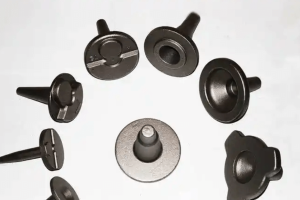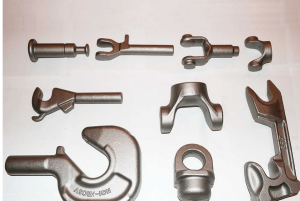Product Categorize
Leave your message
Forged engine parts
Forged engine parts are forged automobile engine parts through die forging process. The main parts of automobile engines are crankshaft, connecting rod, piston pin, valve mechanism parts camshaft, valve, cylinder block and cylinder head related parts, engine connecting rod bolts, flywheel. These engine parts are forged by die forging process to increase the accuracy, high strength and fatigue resistance of engine forging parts. The material selection of forged engine parts directly affects its performance, life and cost. American standards SAE 4140, SAE 4340, SAE 52100, European standards 34CrNiMo6, 42CrMo4, C45E, Japanese SCM440, SNCM439, Korean materials SCM440 / SAE 4340, etc. These materials are not only high in strength and toughness, good in hardenability, high temperature resistance and corrosion resistance, but also have balanced comprehensive performance and low cost.

Forging engine parts, forging process and testing
Crankshafts and connecting rods of engine parts generally choose steel and titanium alloy materials, and can choose hot die forging. The temperature is controlled at 1000-1200 degrees. Gears and camshafts can be made of medium carbon steel and alloy steel materials, and can be forged by warm die forging, with a temperature of 500-800 degrees. The choice of forging process depends on what engine parts the customer forges and what materials the customer chooses. The inspection of forged engines is very important. The quality of forged engine parts directly affects the performance, life and safety of the engine, so a strict inspection process is required. General inspections mainly include these 1 Chemical element analysis of materials, methods: spectral analysis (OES), X-ray fluorescence (XRF), to analyze the chemical elements of the materials to see if they meet the standards. 2 Mechanical properties test 1. Hardness test, to randomly test the hardness of each engine component, not only before heat treatment, but also after heat treatment. 2. Tensile test, through the tensile equipment, to test the tensile strength (Rm), yield strength (Rp0.2), elongation (A%), section shrinkage (Z%) of automobile engine parts. 3 Flaw detection Through flaw detection, cracks and inclusions inside forgings can be found. And surface defect detection. Other auxiliary tests include fatigue resistance test, dynamic balance test, pressure test, etc. The testing standards are in accordance with international (ASTM/ISO) standards, usually using spectral analysis + three-coordinate measurement + ultrasonic testing as the basic inspection, and combined with fatigue testing to verify reliability. As a supplier of forged engine parts, we have 600 tons, 700 tons, 1000 tons, 2000 tons forging equipment, as well as flaw detection, hardness testing, and strength tensile testing equipment. We can forge almost all kinds of automotive engine forgings and provide customers with forged engine parts services.

